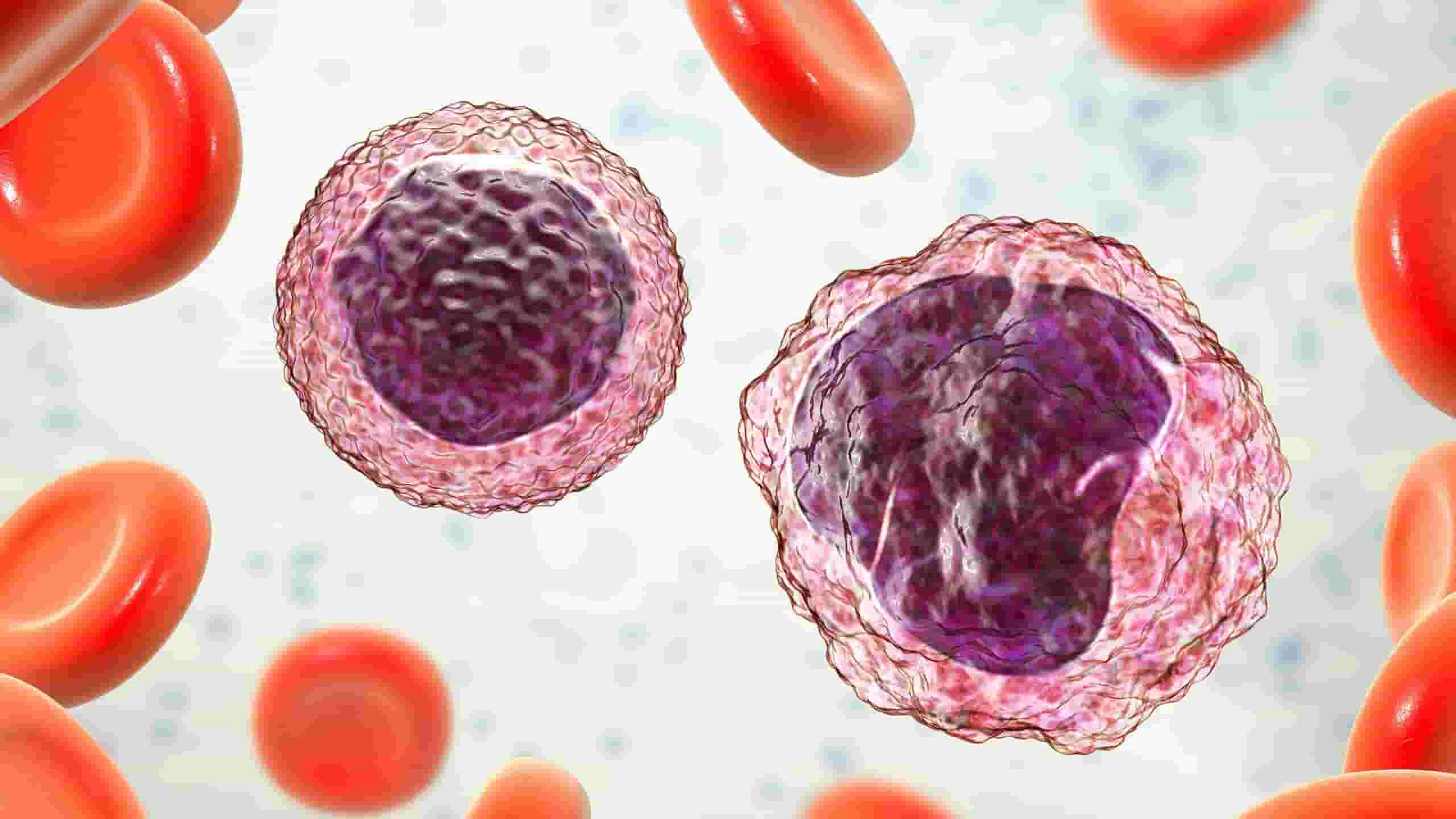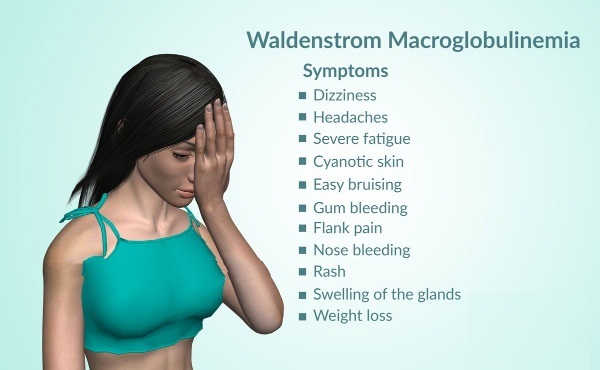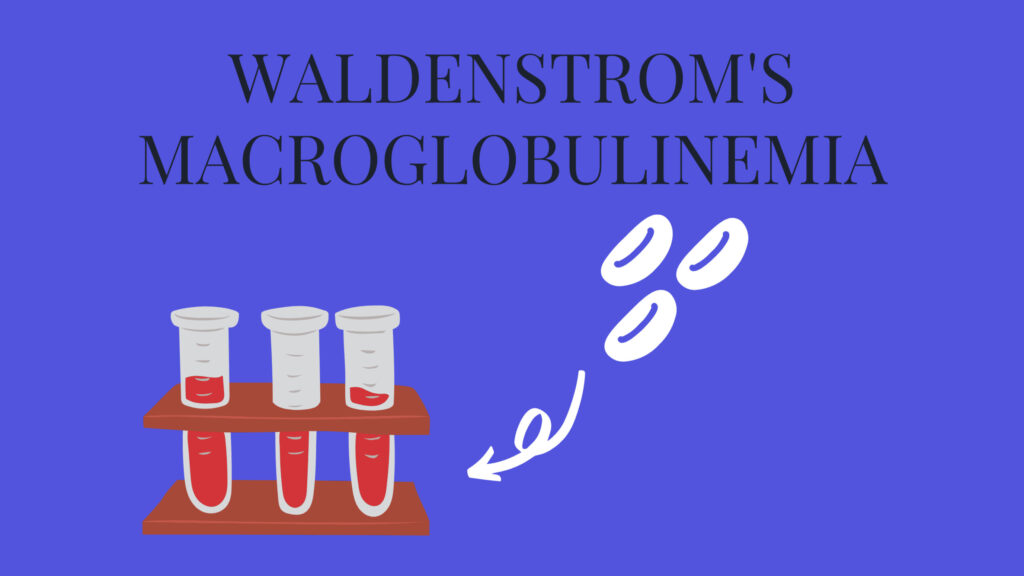WHAT IS WALDENSTROM MACROGLOBULINEMIA?
Waldenstrom macroglobulinemia is an unusual type of cancer that starts in white blood cells.
If you have Waldenstrom macroglobulinemia, your bone marrow produces excessive abnormal white blood cells that take out healthy blood cells. The abnormal white blood cells produce a protein that builds up in the blood, impairs circulation, and causes complications.
Waldenstrom macroglobulinemia is referred to as a type of non-Hodgkin’s lymphoma. It is sometimes known as lymphoplasmacytic lymphoma.

WALDENSTROM MACROGLOBULINEMIA SYMPTOMS
Waldenstrom macroglobulinemia develops slowly and might not cause signs and symptoms for several years.
When they do happen, signs and symptoms might include:
- Easy bruising
- Bleeding from the nose or the gums
- Fatigue
- Weight loss
- Numbness in your hands or feet
- Fever
- Headache
- Shortness of breath
- Changes in vision
- Confusion

WHEN SHOULD YOU SEE A DOCTOR?
Make an appointment with your doctor or primary care physician if you have any persistent signs and symptoms that worry you.
WALDENSTROM MACROGLOBULINEMIA CAUSES
It is not clear what causes Waldenstrom macroglobulinemia.
Doctors or primary care physicians know that the disease starts with one abnormal white blood cell that develops errors (mutations) in its genetic code. The errors tell the cell to continue multiplying quickly.
Because cancer cells do not mature and then die as normal cells do, they build up, ultimately overwhelming the production of healthy cells. In the bone marrow, the soft, blood-producing tissue that fills up the center of most of your bones Waldenstrom macroglobulinemia cells take out healthy blood cells.
Waldenstrom macroglobulinemia cells continue trying to produce antibodies, as healthy white blood cells do, but instead, they produce abnormal proteins that the body cannot use. The protein immunoglobulin M (IgM) builds up in the blood, impairs circulation, and causes complications.
WALDENSTROM MACROGLOBULINEMIA RISK FACTORS
Factors that might increase your risk of Waldenstrom macroglobulinemia include:
- Being older – Waldenstrom macroglobulinemia could happen at any age, but it is most usually diagnosed in adults 65 years of age and older.
- Being male – Males are more probably to be diagnosed with Waldenstrom macroglobulinemia.
- Being white – White people are more likely to develop the illness, compared with people of other races.
- Having a family history of lymphoma – If you have a relative who has been diagnosed with Waldenstrom macroglobulinemia or another type of B-cell lymphoma, you might have an increased risk.

WALDENSTROM MACROGLOBULINEMIA DIAGNOSIS
Tests and procedures used for the diagnosis of Waldenstrom macroglobulinemia include:
- Blood tests – Blood tests might reveal low numbers of healthy blood cells. Additionally, blood tests are used to detect the IgM proteins produced by the cancer cells.
Blood tests might also measure your organ function, which could tell your doctor or primary care physician whether the IgM proteins are affecting your organs, like your kidneys and your liver. - Collecting a sample of bone marrow for testing – During a bone marrow biopsy, your doctor or primary care physician uses a needle to extract some of your bone marrow from your hipbone. The specimen is examined to look for cancer cells. If any are detected, advanced lab analysis could help your doctor or primary care physician understand the cancer cells’ characteristics, including their genetic mutations.
- Imaging tests – Imaging tests could help your doctor or primary care physician determine whether cancer has spread to other regions of your body. Imaging tests might include computerized tomography (CT) scans or positron emission tomography (PET) scans.
WALDENSTROM MACROGLOBULINEMIA TREATMENT
Treatment options for Waldenstrom macroglobulinemia might include:
- Observation – If IgM proteins are found in your blood, but do not have any signs or symptoms, you might choose to wait before starting treatment. Your doctor or primary care physician might recommend blood tests every few months to monitor your condition. You might go years without requiring further treatment.
- Plasma exchange – If you experience signs and symptoms associated with having too many IgM proteins in your blood, your doctor or primary care physician might recommend plasma exchange (plasmapheresis) to remove the proteins and replace them with healthy blood plasma.
- Chemotherapy – Chemotherapy is a medication treatment that kills rapidly growing cells, for example, the abnormal or unusual blood cells produced by Waldenstrom macroglobulinemia.
Chemotherapy might be used alone or combined with other medication treatments as an early treatment for persons experiencing signs and symptoms of Waldenstrom macroglobulinemia. High-dose chemotherapy might also be used to suppress your bone marrow production in preparation for a bone marrow transplant. - Targeted therapy – Targeted therapy drugs kill cancer cells by focusing on the certain abnormalities present in the cancer cells that enable them to survive. Targeted therapy drugs might be used alone or combined with other medications, like chemotherapy or biological therapy, as an initial treatment for Waldenstrom macroglobulinemia or in cases where cancer returns despite treatment.
- Biological therapy – Biological therapy drugs use your immune system to kill cancerous cells. Biological therapy drugs could be used alone or in combination with other drugs as an early treatment or as a treatment for recurrent Waldenstrom macroglobulinemia.
- Bone marrow transplant – In specific highly selected conditions, a bone marrow transplant also called a stem cell transplant, might be used to treat Waldenstrom macroglobulinemia. At the time of this procedure, high doses of chemotherapy are used to wipe out your diseased bone marrow. Healthy blood stem cells are infused into your body where they could rebuild healthy bone marrow.
- Clinical trials – Clinical trials give you the opportunity to try the latest Waldenstrom macroglobulin therapy.
If you or anyone you know is suffering from Waldenstrom macroglobulinemia, our expert providers at Specialty Care Clinics will take care of your health and help you recover.
Call (469) 545-9983 to book a telehealth appointment for an at-home check-up.
